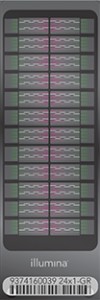23andMe Gets FDA Authorization to Provide Limited Health Reports

The genetic testing company 23andMe has finally been authorized by the FDA to offer customers limited health reports. 23andMe offered genetic information from just a saliva sample, like ancestry and risk of contracting a series of diseases. In 2013, the FDA banned the company from releasing health information unless they were able to prove the accuracy of the tests. Now, the FDA has lifted the prohibition for a fraction of the exams 23andMe offered.
The company is now offering their services in their new website. For $99, customers can know which percentage of each world population (East Asia, Sub-Sahara, Europe) they have in their genes, contact unknown relatives from their 1000000+ people database, build their family tree, trace maternal and paternal lineages and even discover if they have any Neanderthal DNA.
Health information is now restricted to notify carrier status for 36 autosomal recessive diseases. If two carriers of a recessive disease mate, their offspring has a chance of inheriting both mutated genes and developing the disease. This service is already provided by a number of carrier tests from other labs.
The company uses the Illumina HumanOmniExpress-24 format chip, that contains several probes to detect genetic variation. The website guarantees the privacy and security of the information obtained, thanks to multiple levels of encryption protocols.
23andMe still hopes to get permission to inform about health risks, exactly as they planned from the inception of the company, and recover the original rate of new customers, which dropped by 50% after the FDA ban. Another medical testing start-up, Theranos, has faced similar concerns and is waiting FDA approval of their finger blood sampling device.
Many customers allow medical study of their genetic information, and some pharmaceutical companies are paying to use these data. 23andMe has also decided to jump into drug development, potentially more lucrative than selling genetic information.
Source: Engadget

